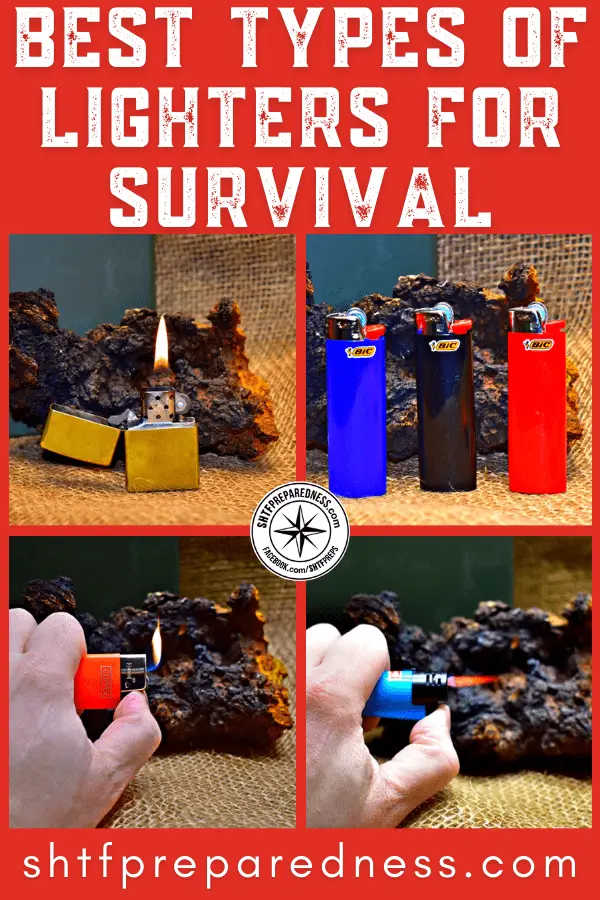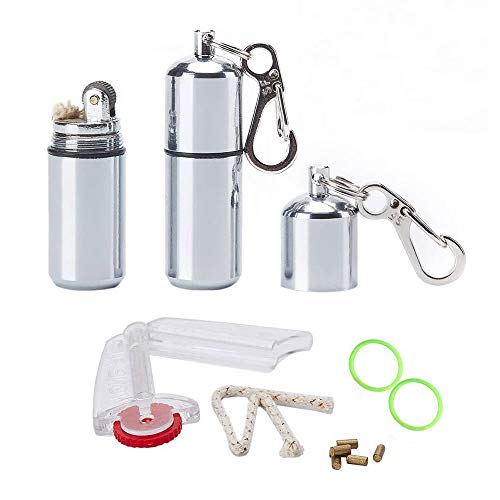Survival rule number one: Have the ability to make fire. While I would love to have the skills to use a hand drill in any condition, I also hate being cold.
Enter the lighter! Rubbing two sticks together is great if you have time, are dry, and are already warm. When life is on the line, you need fire now. Do you know the best types of lighters to start that fire?
If a pocket lighter is a part of your everyday carry (EDC) or your survival lighter is in your bug out bag (BOB), you need to make sure that you have chosen wisely.
Can you depend on any lighter to keep you alive? Like most things in life, it depends on your needs. We’ll look at the pros and cons of our favorite types of lighters. But first, let’s discuss the basics.
What is a Lighter?
Ignition Source
Fuel, heat, and an ignition source. These are the elements of a lighter. To put it simply, a lighter creates a small and controllable fire.
Once you have your controlled flame, you pass it to tinder and kindling to make a fire large enough to keep you warm or cook your dinner.
Lighters use various fuels and ignition sources to get the job done. Be they butane lighters, torch lighters, or even electric lighters, they all use these ingredients to get you closer to a warm meal or closer to fending off the cold.
The fuel can be pressurized, like butane; unpressurized, such as zippo fuel, or non-traditional, as in electric arc lighters. In most cases, the lighter creates a spark to ignite the fuel. This creates various flames for you to control.
Portable
Next, a lighter is portable. Most fit in your pocket or your hand. Tuck them into any spare nook so that they can be available at a moment’s notice.
Personal
Finally, a lighter is personal. To some, a lighter is just a piece of plastic that you stuff in a bug out bag.
To others, a lighter carries history or has been dutifully selected for a very specific purpose. Like everything prepping, there are thousands to choose from!
In short, a lighter is a portable, personal ignition source. An invaluable one, at that.
Main Differences Between Lighters
The purpose of using a lighter is to set something on fire. Be it a cigarette or a bonfire, a lighter is a means to an end. Let’s look at a few differentiators.
Fuel
We usually classify lighters by their fuel type. Butane, naphtha, and batteries are the most common fuels.
Traditional BIC-style lighters use pressurized butane. Some are re-fillable, while others are disposable. These lighters seal in the butane, and they will remain filled for years.
Naphtha-fueled lighters, like Zippos, have a reservoir and a wick. This fuel rapidly evaporates. Unless you seal the lighter, it will run dry within a few days.
Electric lighters use a battery to create an arc of electricity. This super-heated plasma is used to ignite your material. You will need to replace or recharge the fuel cells periodically.
Flame Type
Next is the type of flame the lighter produces. From soft and cool, to over 3,000 degrees, choose the type that is best for you.
Wick-style lighters generate a simple flame that is like a candle or an oil lamp. The open flame cannot be directed, and the yellow flame gets about 1,500 degrees.
Similar to these are open-flame butane lighters. Again, just like a candle, these flames cannot be directed and are susceptible to wind, but the blue flames get over 2,000 degrees.
Torch lighters use specially designed nozzles to intensify the flame and provide a highly directional fire source. Cigar aficionados have popularized torch lighters with horizontal flames.
The increased pressure allows you to point the flame in any direction, which can make lighting survival fires much easier. Only the strongest wind gusts will affect these flames.
Finally, there are flameless lighters. This is the class of lighters that includes arc and plasma lighters. These devices generate a small spark that will ignite anything that comes into contact with the arc. The wind does not affect these lighters.
Construction
Finally, you must consider construction. Like most things in life, you can go disposable or ultra-high-end.
You can get just about any lighter style as a disposable item. From butane open flame to torch, for a few dollars, you can stash one in your bug out bag and toss it when empty.
The construction is generally plastic with inferior parts. If they break, no loss. Just a new one.
Some lighters are worth a greater investment. Metal construction and tighter tolerances can make some lighters a lifetime investment that is handed down through the generations.
Take the case of zippo lighters. While not particularly expensive, how many have run for years with weekly fill-ups and annual cleanings, with the occasional flint replacement?
Types of Lighters
With so many to choose from, there is no reason not to have a few in your EDC, BOB, and stash.
Fuel and Wick
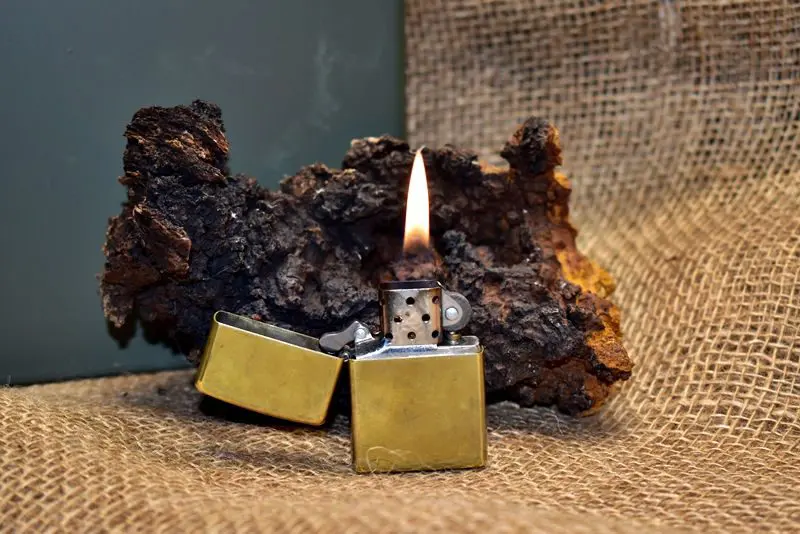
First, in the list of the best types of survival lighters, we have fuel and wick lighters. The age-old Zippo. I carry one in my right front pocket all day, every day. This zippo has started uncountable fires and candles.
I carry it for these obvious purposes, but I also carry it to remind me of my uncle and his chrome zippo. Either the “Zippo click”, or the smell, brings back a rush of memories every time I use it. I’m pretty sure I’m not alone. Enough of the emotion.
Fuel and wick lighters are simple, dependable, and will run forever. They are built to last and only need a minimal amount of maintenance to keep going.
The primary issue is that you need to keep them filled. Therefore, they are best for EDC. A quick strike every morning will let you know if you need to top it off.
Zippo fuel is essentially naphtha. This is the same key ingredient in white gas, or Coleman fuel. It’s cheap and lasts forever. Stack it high and deep.
Pros
- The memories
- Built to last
- Can be wind resistant
- Uses multiple fuels
- Once lit, there is no need to hold down buttons
Cons
- Needs to be refilled consistently
- Flame cannot be directed
- Requires periodic maintenance to last
Best Fuel and Wick Lighters
- Zippo Classic
- Peanut
Zippo Classic Satin Chrome Pocket Lighter Peanut Lighter EDC Mini Waterproof Lighter (2 Pack)
Peanut Lighter EDC Mini Waterproof Lighter (2 Pack)
Butane Lighters
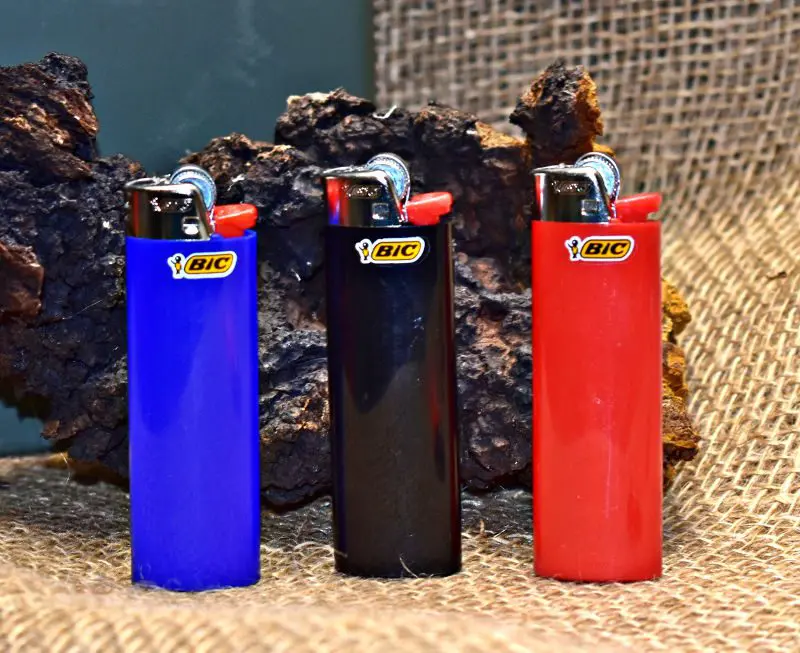
The second item on this list of the best types of lighters is butane lighters. BIC lighters and the multitude of cheaper knockoffs fill this category.
A quick spin of the wheel, then hold down the button, and away you go. This is the best category if you want a disposable lighter.
I stick with BIC. They are dependable and relatively inexpensive, and the cheaper versions are bound to fail when you need them the most.
Pros
- No maintenance
- Inexpensive
- Disposable: once used up, toss and get a replacement
- Some have flame height adjustments
- Some can be refilled
Cons
- Flame cannot be directed
- Not wind resistant
- The top gets hot after a few seconds of use
Best Butane Lighters
- BIC Classic Lighter
- Djeep
- Classic Disposable Lighters
BIC Classic Lighter – Assorted Colors, 50 Count Neon Hot Body Djeep Lighters, 8 Count
Neon Hot Body Djeep Lighters, 8 Count Wholesale Lot Classic Disposable Lighters, 50 Count
Wholesale Lot Classic Disposable Lighters, 50 Count
Torch Lighters
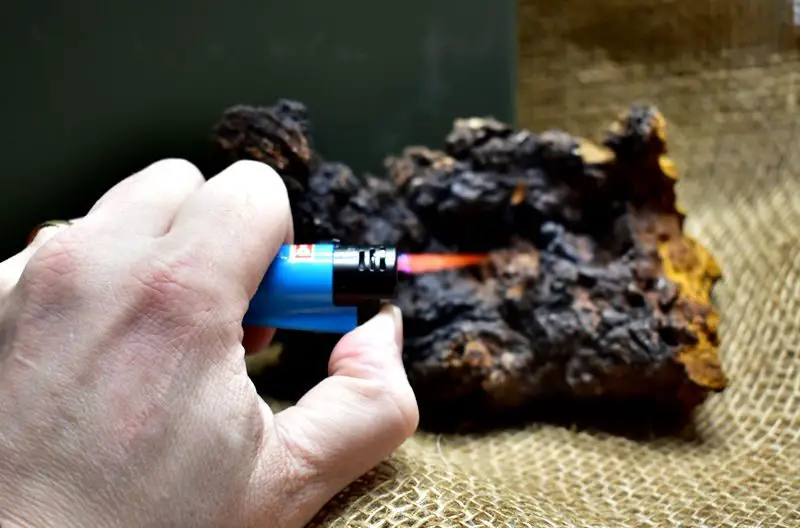
Next are torch lighters. When you need a bit more control over your flame, invest in a butane torch lighter.
Their design mimics a mini-torch. They are resistant to gravity and wind and have been popularized as cigar lighters. These factors make them one of the best types of lighters for survival.
The biggest downside is the amount of fuel they burn. Be warned, the disposables won’t last long. If you buy a quality torch lighter, invest in quality fuel. The cheaper brands will eventually clog up the nozzle.
Pros
- Full range of prices
- Not affected by wind
- Some can be refilled
Cons
- Burn through fuel quickly
- Some can be very expensive
Best Torch Lighters
- Eagle Angle Torch Lighter
- S.T. Dupont
- Kollea Triple Jet
Kollea Torch Lighter, Triple Jet Flame Windproof Fuel Lighter S.T. Dupont Defi Extreme Single Torch Matte Black
S.T. Dupont Defi Extreme Single Torch Matte Black Eagle Angle Torch Torch Lighter Windproof Lighter, 5 Count
Eagle Angle Torch Torch Lighter Windproof Lighter, 5 Count
Plasma and Arc Lighters
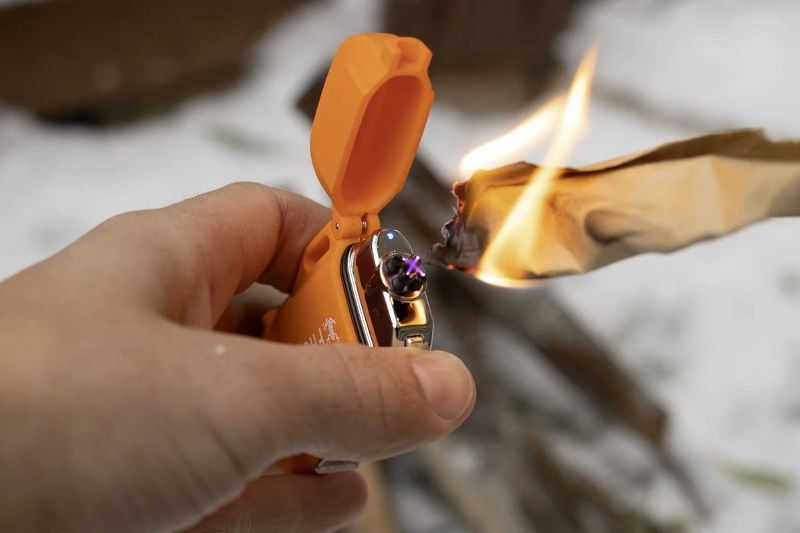
Blasting into the future, or at least it feels like it, arc lighters are also known as plasma lighters. These don’t require traditional fuels; however, they do use batteries as their fuel.
The ignition source is an arc of electricity that is hot enough to set most anything on fire. As there is no flame, there is nothing to blow out.
The biggest disadvantage of these is that the ignition spot is very small. You won’t be able to light much over the size of a match. So be ready with your tinder and kindling.
Pros
- Not affected by wind
- Most are waterproof
- Some are USB rechargeable
Cons
- Small ignition area
- Battery may not last (100–400 recharges)
Best Plasma and Arc Lighters
Permanent Match
Finally, a permanent match, or forever match, is an extension of wick lighters. Survivalists have spoken highly for years of forever matches as among the best types of lighters for your bug out bag or EDC.
Instead of the wick being an integral part of the lighter, the wick is removable like a match. The body of the lighter holds the fuel, and the match holds the wick and flint.
First, remove the match. Next, spin the match’s flint wheel, or strike the match against the lighter. Now, you have a light match that you can apply to any situation.
Pros
- Uses multiple fuels
- If they are well sealed, they will last indefinitely between uses
Cons
- May leak
- Require wick and flint maintenance
Best Permanent Match Lighters
What to Do If You Don’t Have a Lighter?
Two is one, and one is none. It’s always best to have redundancy in your preparations. So what should you do if your lighter fails? Or do you fail to have a lighter?
The only answer to these questions is survival skills! I will choose to light a fire with modern technology every day.
That being said, I can still effectively use a fire steel and I am passable with a bow drill.
It is always better to carry knowledge in your head than gear on your back. With fire, your knowledge applies to any method. Tinder is tinder, and kindling is kindling.
Skills gained to perfect the selection of kindling and tinder for a hand drill directly apply to a BIC lighter. In fact, they make all-fire starting easier.
What is the Best Type of Lighter for You?
There is nothing as dynamic while camping as a fire. Few other things are as life-saving and as comforting. A quickly built fire will keep you on this side of tragedy when things go south.
You must have multiple means for making a fire on you whenever you head out the door. EDC lighters, torch lighters for your BOB, or even a BIC in your glove box are cheap insurance against dark and cold times.
Look at your threats. Pick up a few different lighters until you find your personal best type of lighter for survival. Hit the backyard or trails for some dirt time. Make a few fires to boil up a pot of coffee.
You never know when you will have to use those skills for real someday. It might be best to master them now!
